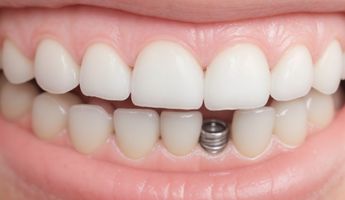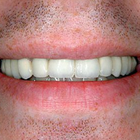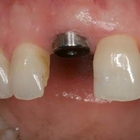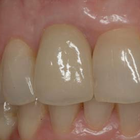Dental Implant in Cambodia
Search and Compare the Best Clinics and Doctors at the Lowest Prices for Dental Implant in Cambodia

Find the best clinics for Dental Implant in Cambodia
With Medijump you can browse 4 facilities offering Dental Implant procedures in Cambodia. The cheapest price available is $1,100 in Phnom Penh. And for the cheapest price globally, prices start from $1 in Vietnam.
Dental Implant in Phnom Penh
Price: $ 1,100
Vietnam offers the best prices Worldwide
Price: $ 1
From 59 verified reviews
Ea Chivorn, 13 September 2020
Good service and good place
Santepheap Dental Clinic, located in Prampir Meakkakra, Phnom Penh, Cambodia offers patients Dental Implant procedures among its total of 3 available procedures, across 1 different specialties. The cost of a Dental Implant procedure ranges from $1,100 to $2,500, whilst the national average price is approximately $1,200. There are many specialists available at the Dental, with 4 in total, and they are accredited by ISO 9001 : 2015
From 4 verified reviews
Meng Leaph, 22 September 2020
Good doctor with full of skill and comfortable treatment room 👍
From 6 verified reviews
salita chan, 21 August 2019
Good services, professional dentist and reasonable price.
- Home
- Cambodia
Compare Before & After Photos of _procedure_photos.phpDental Implant


Front view


Front view


Front view


Front view


Front view
WHY US?
At Medijump, we're making medical easy. You can search, compare, discuss, and book your medical all in one place. We open the door to the best medical providers worldwide, saving you time and energy along the way, and it's all for FREE, no hidden fees, and no price markups guaranteed. So what are you waiting for?

Free

Best Price

Widest Selection

Risk-Free
What you need to know about Dental Implant in Cambodia

A dental implant is a medical device that provide support to artificial teeth. It's surgically placed into the jaw to act as a replacement for the root of a missing or damaged tooth, which in turn serves to hold a replacement tooth or bridge. It functions and looks much like a real tooth, restoring your ability to chew and improves your overall appearance. Dental implant surgery is considered as a better alternative to dentures or bridgework that does not fit well. It also offers a great option for people when they do not have enough natural teeth roots left to build denture or bridgework replacements.
Since dental implants eventually fuse with your jawbone over the span of several months, it won’t make noise, slip, or cause bone damage the way dentures or bridgework might. Dental implants also enable natural speech, look and feel like your own teeth, make eating easier, and improves your appearance. However, the surgery may involve several stages, and, in some cases, it may require two separate visits to the clinic to complete. Ensure to look for a specialist in a reputable clinic for the best results.
What is the cost of Dental Implant in Cambodia?
Price differences abound in Cambodia for Dental Implant based on the clinic, the proficiency of the surgeon, and the individual requirements of the patients. It's essential to realize that dental insurance usually doesn't cover the entire bill for this treatment, though it might cover a part. Several dental clinics provide finance schemes or payment alternatives to assist in easing the financial burden. For more precise cost estimates, reach out to your dental service provider or a nearby clinic.
What does a Dental Implant Procedure Involve?
Dental implant surgery generally requires several stages. Each stage may be performed under general or local anesthetic. The first stage is removing the damaged tooth. Then, if your jawbone is too soft or not thick enough, your dentist may perform bone grafting to create a more solid base for the implant. The bone graft may be natural (taken from another part of your body) or synthetic (a bone-substitute material). If you only need minor bone grafting, the implant surgery can be performed on the same day. However, if you need a significant amount of bone graft, the implant surgery may have to be postponed until the transplanted bone grows enough new bone to support the dental implant.
The next stage after the damaged tooth removal and bone graft (if you need one) is placing the dental implant. To do this, your dentist makes an incision to expose the bone and puts the metal implant post deep into the bone. At this stage, you will still have a gap where your tooth is missing. Your dentist will place a temporary denture for appearance. Once the metal implant post is placed, osseointegration begins. This is a process where the jawbone grows into the surface of the implant and can take several months to complete. After osseointegration is complete, your dentist will place the abutment, which is a small connector post that will hold your new tooth. The final stage, after the abutment is placed, is placing the crown, which is the tooth-looking part. You can choose between a removable crown and a fixed crown.
How Long Should I Stay in Cambodia for a Dental Implant Procedure?
The length of your stay in Cambodia for a Dental Implant depends on numerous considerations like the intricacies of the procedure, the quantity of implants required, and your personal recovery process. Each stage of dental implant surgery is done in separate appointments. After each appointment, you should be able to leave the hospital or clinic right away. However, you should stay in Cambodia for at least 2 weeks for completion of the work, the initial recovery time, and follow-up checkups.
What's the Recovery Time for Dental Implant Procedures?
The recuperation duration following a Dental Implant or dental implant operation can widely vary and is shaped by multiple aspects. Initial healing of the tissue might require only a handful of days, but complete osseointegration (the fusion of the implant with the jawbone) generally spans several months. This window could be extended for patients requiring auxiliary procedures such as bone grafts, or those with prevailing health issues that may impede the healing process.
Post-procedure, it's not unusual to experience a degree of discomfort, which could manifest as minor pain, swelling of your gums and face, skin and gum bruising, and slight bleeding. Such symptoms are a standard phase of the recovery process and should alleviate within a fortnight. In this interim, it's advisable to stick to a soft diet to not overload the implant site with undue pressure. Any strenuous physical exertion should be put off to circumvent potential complications.
Maintaining excellent oral hygiene is paramount to facilitate healing and stave off infection. Regular brushing and flossing, being particularly gentle around the surgical area, coupled with rinsing your oral cavity with warm saline water, can contribute to keeping the region hygienic.
What sort of Aftercare is Required for Dental Implant Procedures?
After each stage of surgery, you may have to eat soft foods. Since you may experience swelling, bruising, pain, and minor bleeding, your dentist will prescribe pain medications or antibiotics to help ease your discomfort. During your recovery period, you need to avoid smoking as it can contribute to implant failure and complications.
No special care is required for dental implants. Nonetheless, you need to practice good oral hygiene in order to maintain the implant and your remaining natural teeth. Make sure to brush your teeth twice a day, floss daily, and rinse your mouth with an antiseptic mouthwash. You also need to see your dentist regularly and avoid damaging habits, such as chewing hard items.
What's the Success Rate of Dental Implant Procedures?
The efficacy of Dental Implant, alternatively referred to as dental implants, in Cambodia, is typically impressive, boasting effectiveness percentages as high as 98% in some studies. This positions dental implants as one of the most reliable procedures within dental care's realm. Nevertheless, it's worth mentioning that the success rates might fluctuate, influenced by several factors.
The patient's overall health is a key determinant of the thriving outcome of a dental implant procedure. Individuals exhibiting optimal health usually witness higher success rates. Pre-existing health issues like diabetes, osteoporosis, and periodontal ailments can theoretically impact the efficacy of the implant.
Additional contributing factors to the success rate encompass the quality and abundance of the individual's bone structure. Patients boasting plentiful, healthy bone are ordinarily the perfect candidates for dental implants. However, those who have experienced bone loss might need to undergo a bone grafting procedure before the implant procedure. This step can provide a robust base for the implant and enhance the chances of a successful result.
Are there Alternatives to Dental Implant Procedures?
If you are not a candidate for dental implant surgery, or you simply do not want to undergo the procedure, you can opt for the alternatives. The alternatives include:
- Mini dental implants, which is a small type of dental implants. The structure is similar to regular dental implants, but are somewhat smaller in size. Unlike regular dental implants, dentists can often place mini implants only in one visit using local anesthesia. You may also be able to use your new teeth on the same day.
- A same-day implant is essentially similar to traditional dental implants. However, your dentist performs the whole process in just one day, skipping the process of wound healing and osseointegration.
- Implant-supported dentures or All-on-4 is an alternative if you need to fix a complete upper or lower set of teeth. During this procedure, four to six implants are placed into your jawbone as a base to attach and stabilize your denture.
What Should You Expect Before and After the Dental Implant Procedure?
Grasping what lies ahead before and post the Dental Implant can lessen potential worries and guarantee you are fully equipped for the upcoming journey. Prior to the procedure, your dental practitioner will conduct an all-inclusive dental assessment. This check-up may encompass dental X-rays and sophisticated 3D imaging to examine the status of your oral cavity.
The dental professional will also explore your medical history. If you're suffering from specific heart disorders or orthopedic implants, your dental practitioner might suggest antibiotics to avert infection. A personalized treatment blueprint, customized to your circumstances, will be constructed. This strategy takes into account factors like the amount of teeth you need substituted and the state of your jawbone. The procedure is typically carried out under local anesthesia to mitigate any discomfort.
Subsequent to the operation, experiencing slight unease is usual. You might witness inflammation of your face and gums, discoloration of your skin and gums, soreness at the insertion area, and insignificant bleeding. Your dental specialist will recommend medications to soothe these indicators. In case inflation, unease, or any other complications intensify in the days post-operation, it's crucial to reach out to your oral surgeon. Post-operation will require you to consume mushy foods as the operated site recovers. Moreover, you'll be guided to abstain from smoking, as it can hinder recovery and influence the triumph of the dental implant.
Following the positioning of the implant, the healing process, and fusion with the bone (osseointegration) transpire over an extended period. During this interval, maintaining robust oral cleanliness is vital. This involves frequent brushing, the use of dental floss, and cleansing with an antibacterial mouthwash. Periodic dental examinations are obligatory to track progress and confirm the well-being and effectiveness of the implant.
What are Potential Risks of Dental Implant?
Despite Dental Implant boasting remarkable effectiveness, it is, as any surgical operation, not without risks and potential difficulties. The chances of encountering these issues are often minute and irregularities are infrequent, yet it remains critical for patients to comprehend these possibilities before undertaking the procedure.
Complications and side effects may include:
- Implant failure
- Nerve injury
- Infection
- Sinus problems
- Damage to surrounding structures, such as other teeth or blood vessels
How long does a Dental Implant last?
The durability of a Dental Implant is heavily reliant on the individual's oral cleanliness and general wellbeing. Nonetheless, with appropriate upkeep and care, dental implants have the potential to stand the test of time. The titanium pillar inserted into the jawbone during surgery is crafted to be everlasting, while the dental cap fastened to the anchor may necessitate substitution every decade or decade and a half due to normal usage. Yet, with outstanding dental management and habitual screenings, the cap has the potential for lifelong endurance.
Whilst the information presented here has been accurately sourced and verified by a medical professional for its accuracy, it is still advised to consult with your doctor before pursuing a medical treatment at one of the listed medical providers
No Time?
Tell us what you're looking for and we'll reachout to the top clinics all at once
Enquire Now

Popular Procedures in Cambodia
Prices Start From $1

Prices Start From $1

Prices Start From $48

Prices Start From $1

Prices Start From $1

Prices Start From $11

Prices Start From $1

Prices Start From $45

Recommended Medical Centers in Cambodia for Dental Implant

- Interpreter services
- Translation service
- Religious facilities
- Medical records transfer
- Medical travel insurance
- Health insurance coordination
- TV in the room
- Safe in the room
- Phone in the room
- Private rooms for patients available

- Interpreter services
- Translation service
- Religious facilities
- Medical records transfer
- Medical travel insurance
- Health insurance coordination
- TV in the room
- Safe in the room
- Phone in the room
- Private rooms for patients available

- Interpreter services
- Translation service
- Religious facilities
- Medical records transfer
- Medical travel insurance
- Health insurance coordination
- TV in the room
- Safe in the room
- Phone in the room
- Private rooms for patients available

- Interpreter services
- Translation service
- Religious facilities
- Medical records transfer
- Medical travel insurance
- Health insurance coordination
- TV in the room
- Safe in the room
- Phone in the room
- Private rooms for patients available

- Interpreter services
- Translation service
- Religious facilities
- Medical records transfer
- Medical travel insurance
- Health insurance coordination
- TV in the room
- Safe in the room
- Phone in the room
- Private rooms for patients available
Dental Implant in and around Cambodia
Introduction
Perched in the heart of Southeast Asia, nestled between Thailand and Vietnam, lies Cambodia — a dynamic blend of ancient and contemporary worlds that makes for an intriguing adventure. Dominating its list of attractions is the globally-renowned Angkor Wat, embroidered by lush jungles.
It is the soul of Cambodia — its vibrant culture, warm inhabitants, profound historical heritage, stunning coastlines, delightful cuisine, and spirited nightlife — that gives this nation its unique charm. Each element, individually fascinating and collectively harmonious, weaves a magical tapestry that is Cambodia.
Over recent years, Cambodia has strategically bolstered its healthcare infrastructure, aiming to appeal to a global patient community. In this endeavor, the country has witnessed several of its hospitals forging partnerships with institutions from close-by countries, with Thailand being a significant partner.
These strategic alliances have been key in establishing state-of-the-art healthcare facilities across Cambodia. These healthcare establishments strive to cater to a diverse array of medical needs, ensuring the delivery of world-class, professional care that meets, if not surpasses, internationally accepted standards.
Cambodia is relentlessly driving efforts to enhance its healthcare sector, with one main goal - to give patients access to top-notch medical care at costs significantly lower than those in other Southeast Asian nations, Singapore being a prime example.
This strategic approach is geared towards attracting patients from regions like Laos, Taiwan, and China. The essence of this approach is to establish Cambodia as a major healthcare destination that offers high-quality medical services, all within a budget-friendly framework that doesn’t strain patients' finances.
Popular Cities and Regions in Cambodia
Phnom Penh is the capital of Cambodia, as well as the main medical tourism destination in the country. Once the ‘Pearl of Asia,’ this bustling city is now filled with bustling bars, historical architecture, vibrant café culture, a world-class food scene, and a glimmering Royal Palace.
Tourists venturing into Cambodia are invited to traverse the myriad attractions this enchanting nation has to offer. A must-visit is the National Museum of Cambodia which houses the country's extensive cultural history and art. For those who seek a deeper insight into Cambodia's past, the Tuol Sleng Genocide Museum provides a poignant yet important glimpse into the darker chapters of its history. In addition, the Royal Palace stands as a testament to Cambodia's architectural grandeur, drawing admiration from visitors across the globe. Another gem to explore in Phnom Penh is the Silver Pagoda, a unique blend of tranquility and exquisite craftsmanship, making for an unforgettable experience.
Moving beyond the capital city of Phnom Penh, Siem Reap emerges as another popular destination in the Cambodian travel circuit. This city, bustling with energy and soaked in history, captures the diverse ethos of Cambodia in its vibrant art, architecture, and local life. Inclusion of Siem Reap in any Cambodian itinerary lends an additional layer of cultural depth, making the exploration of this intriguing nation an even more enticing proposition. As such, whether it's diving into the past or experiencing the dynamic present, Cambodia offers a varied palette of experiences to delve into.
It’s where the fascinating, UNESCO-listed Angkor Wat is located. Aside from Angkor Wat, Siem Reap also offers other attractions, such as the Angkor Silk Farm, Wat Bo, War Museum, and Senteurs d’Angkor Botanic Garden. Those who want to relax on a beach should visit Sihanoukville. It was once a quiet beach town, but now it has become a modern up-and-coming holiday destination.
Transport in Cambodia
Phnom Penh International Airport stands as the largest and most bustling airport in Cambodia. Acting as a critical transportation nexus, it facilitates both domestic and international air travel. The airport offers numerous flight connections to various cities across Asia, making it a convenient choice for international tourists. Besides being a gateway into Cambodia, it also serves as a starting point for internal travel.
For tourists looking to cover various parts within the country swiftly, opting for domestic flights is a time-efficient choice. These flights are well-linked, providing easy access to different parts of this captivating country. Despite being the fastest mode of travel, they maintain reasonable fares, ensuring that the journey is equally enjoyable as the destination.
As one navigates within the cities, there is a disparity between the modes of transportation used for intra-city and inter-city travel. While trains and buses are the preferred options for traveling between different cities due to their affordability, city-based transportation adopts a different palette altogether. For daily city commutes and quick visits to local sights, taxis, tuk-tuks, and motorbikes are the most viable options. They're not only readily available but also allow for an intimate view of Cambodian city life. This dynamic and efficient transportation network significantly enhances the convenience of exploring Cambodia's stunning expanse.
Visas in Cambodia
- Citizens of 9 countries, including Laos and Singapore, can visit and stay in Cambodia for up to 30 days without a visa.
- Citizens of most other countries can apply for a visa on arrival or eVisa.
- All visitors must have a passport valid for at least six months beyond their intended date of departure from Cambodia.
Visa on arrival
- A visa on arrival can be obtained at any of the following Cambodian airports: Phnom Penh International Airport (PNH), Siem Reap International Airport (REP), and Sihanoukville International Airport (KOS).
- The visa on arrival fee is USD 30.
- Visitors who obtain a visa on arrival must have a valid passport and two passport-size photos.
eVisa
- An eVisa can be obtained online at the website of the Cambodian government.
- The eVisa fee is USD 35.
- Visitors who obtain an eVisa must have a valid passport and a digital photo.
Weather in Cambodia
Cambodia is blessed with a warm climate throughout the year, making it a destination for all seasons with temperatures seldom falling below 20°C. Cambodian weather is generally categorized into two primary seasons: wet and dry. The wet season, spanning from May to October, is marked by episodic showers during daytime hours, adding to the country's tropical charm.
The dry season, commencing from November and extending up to April, is typified by agreeable and sunny weather conditions, making it an ideal time for travel and exploration. However, it is worth noting that during the peak of the dry season, specifically in March, temperatures can climb up to a sweltering 35°C. Despite the somewhat extreme conditions, the resplendent beauty of the country remains undeterred, with Cambodia promising a riveting experience regardless of the season.
Additional Info
- Local Currency: Cambodian riel (KHR) is the official currency and 1 USD converts to approx. 4,161.63 KHR. However, USD is widely accepted.
- Money & Payments: ATMs are widely available and sometimes dispense US dollars. Credit cards are accepted in major cities. Tipping is expected and appreciated.
- Local Language: The official and mainly spoken language is Khmer. Some people also speak Vietnamese and Chinese. English is mostly used in tourist areas and major cities.
- Local Culture and Religion: About 97% of the population follows Theravada Buddhism. Islam, Christianity, and tribal animism make up the remaining 3%.
- Public Holidays: Victory over Genocide Day, Khmer New Year, King’s Birthday, Day of Remembrance, and Independence Day are some of the public holidays celebrated in Cambodia.
Popular Searches
- Plastic Surgery in Thailand
- Dental Implants in Thailand
- Hair Transplant in Thailand
- Breast Augmentation Thailand
- Gastric Sleeve in Thailand
- Gender Reassignment Surgery in Thailand
- Laser Hair Removal in Bangkok
- Botox in Bangkok
- Dermatology in Bangkok
- Breast Augmentation in Bangkok
- Coolsculpting in Bangkok
- Veneers in Turkey
- Hair Transplant in Turkey
- Rhinoplasty in Turkey
- Stem Cell Therapy in Mexico
- Rhinoplasty in Mexico
- Liposuction in Mexico
- Coolsculpting in Tijuana
- Rhinoplasty in Korea
- Scar Removal in Korea
- Gastric Sleeve in Turkey
- Bone Marrow Transplant in India
- Invisalign in Malaysia
- Plastic Surgery in the Dominican Republic
- Tummy Tuck in the Dominican Republic
- Plastic and Cosmetic Surgery in Poland
- Rhinoplasty in Poland
- Hair Implant in Poland
- Dental Implants in Poland
- IVF in Turkey



